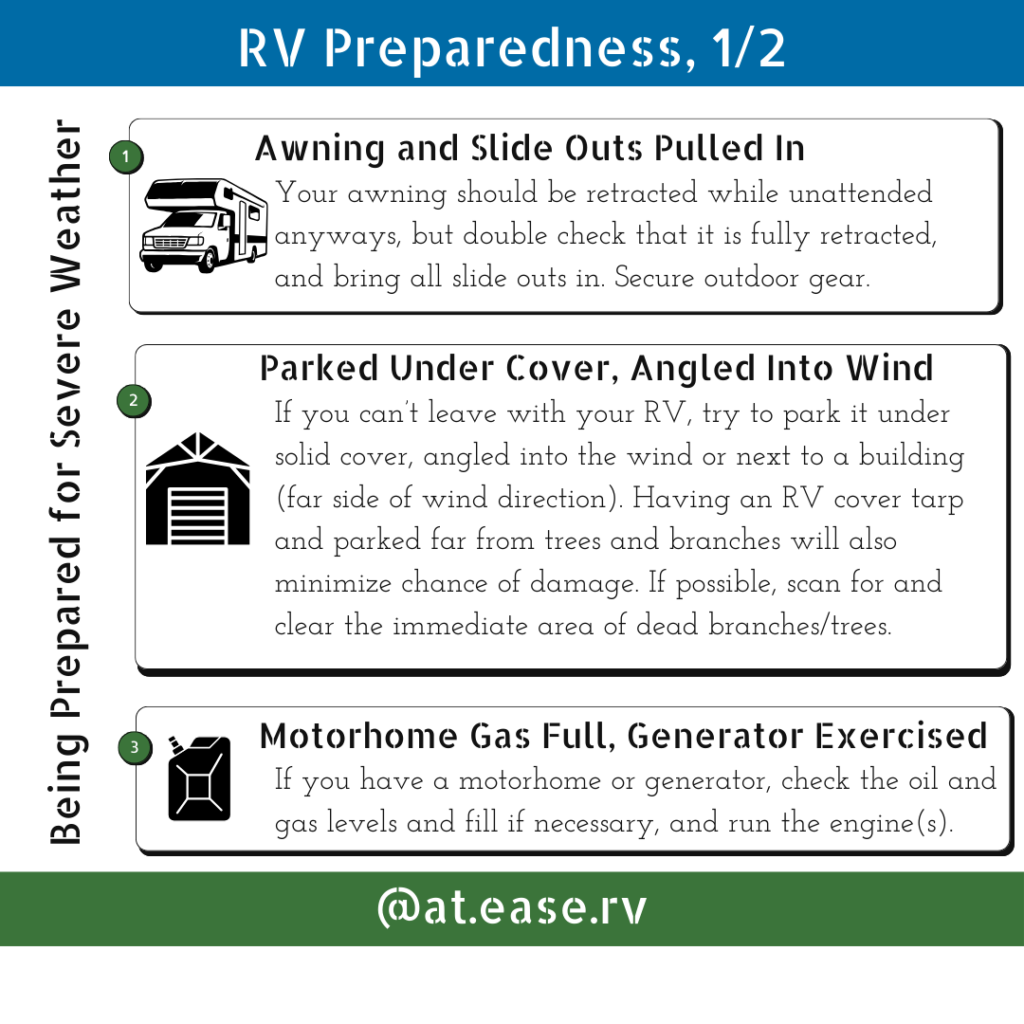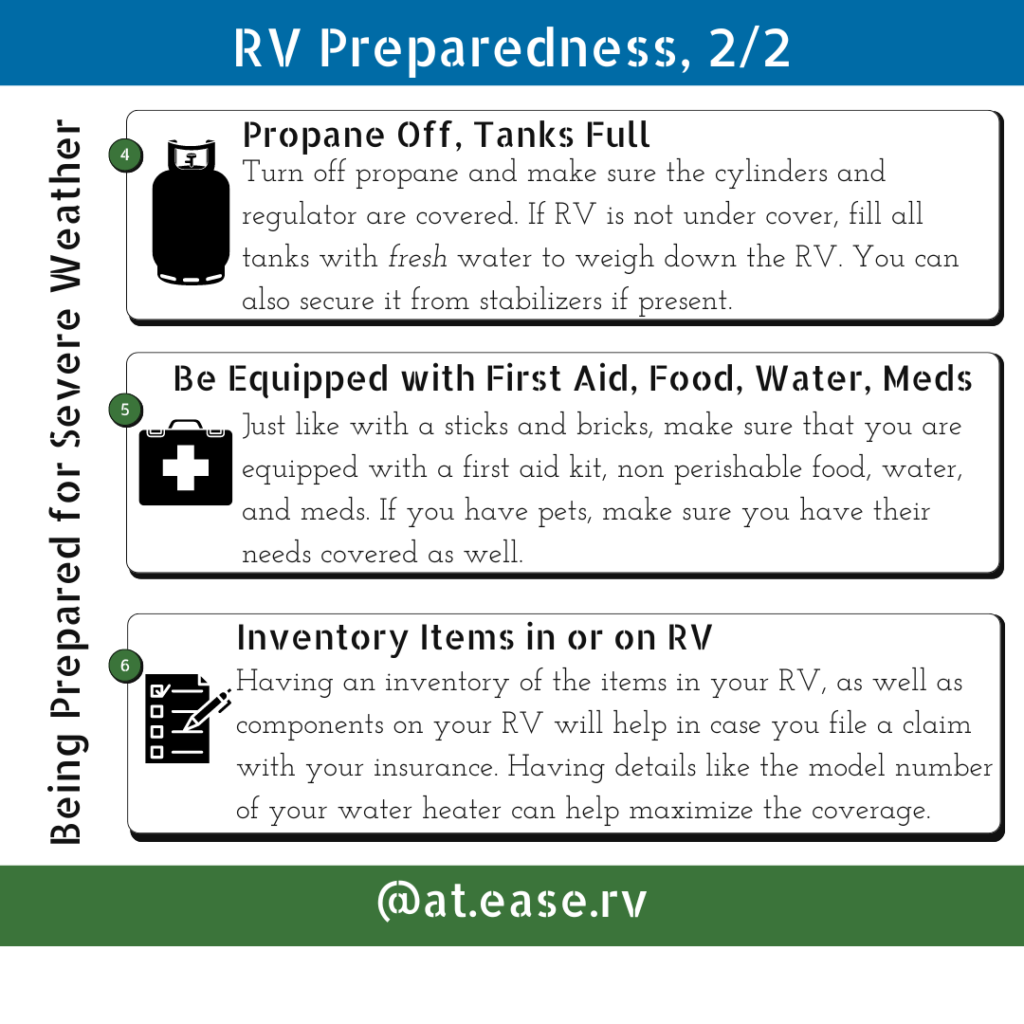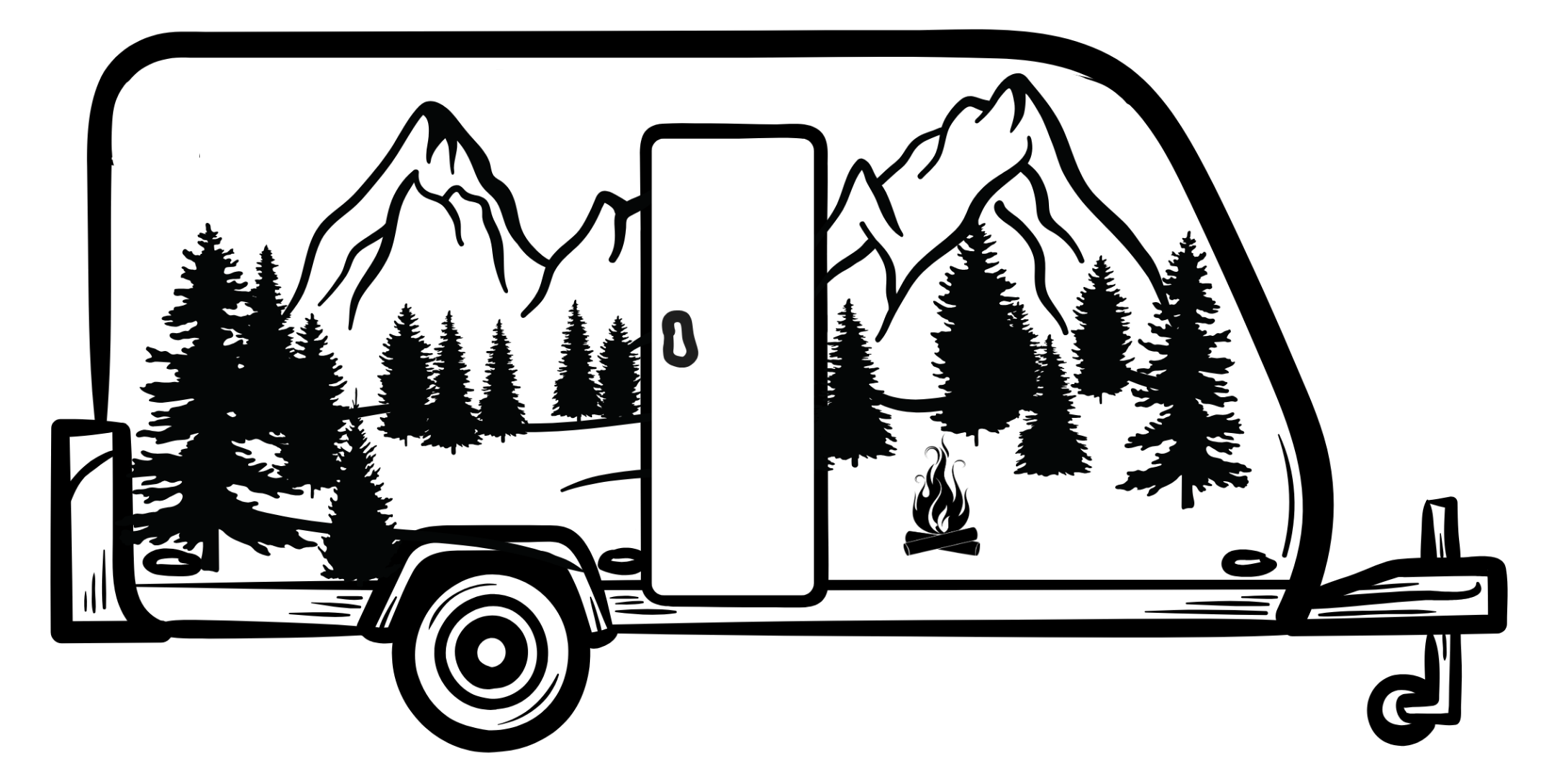It’s that time of year; I’ve been seeing posts on social networks asking “How do I prepare my RV for a tropical storm?”. Given that not everybody has the option of moving themselves and the RV out of severe weather, here’s what you need to know about preparing your RV for severe weather.
First off, the ideal is always to move both yourself and your RV out of the forecasted severe weather area. This minimizes the chance of damage to your RV and your possessions and it keeps you safe. However, if that isn’t possible for whatever reason, you should get yourself, your family, and any pets out of the way, and prep your RV as best you can.

Here are some options of where to leave your RV, from best choice down:
- Parked inside/under a solid structure
- Parked next to a solid structure, on the far side of the wind (so the building protects the RV from the brunt force of the wind)
- Parked angled into the wind
You’ll want to scan and clear the immediate area for any dead branches or trees, and you should try to cover your RV with one of those vehicle covers made for long term storage if not parked under cover. While it won’t protect your RV from a solid object hitting it, like a branch, it will hopefully keep any damage shielded from rain or wind.
Your awnings and slide outs should be in or retracted. While you shouldn’t leave your awning out while unattended or in windy or rainy weather anyways, it is especially important to make sure it is in completely during severe weather.
If you have a motorhome, make sure that the gas tank is full, oil level is good, and that the engine has been run recently. If you have a generator, whether on a motorhome or towable, make sure that the gas and oil levels are good on the generator and run it, especially if it hasn’t been run recently. Address any issues with the generator before it’s potentially the only source of power.
Turn off propane and make sure the cylinders and regulator are covered. If your RV is not under cover, fill all tanks with fresh water to weigh down the RV. You can also secure it from stabilizers if present- note that leveling jacks and stabilizers are not the same thing- if you plan to anchor down your RV, consult your owner’s manual and/or the manufacturer to ensure you won’t bend something crucial in trying to anchor it.
You could also unhook everything that hooks onto the RV- shore power cord, fresh water hose, stinky slinky- in order to reduce the risk of them getting pulled out by something.
Before the severe weather arrives, get an inventory of the items in your RV. Having details of your possessions inside as well as the model number of the components on your RV will help in case you file a claim with your insurance. Those details can help maximize your coverage should catastrophic damage occur. If you have the time, getting videos showing everything in proper working order will also go a long way if you need to file a claim.
Just like with a sticks and bricks, make sure that you are equipped with a first aid kit, non perishable food, water, and meds. If you have pets, make sure you have their needs covered as well. Have these items accessible. If you are staying in the area, get yourself to a designated safe area, and bring your meds and water with you. You could choose to leave a little notecard size note on your door with contact information and location if you are not in the RV; this can help first responders during and after the severe weather. On the flip side, some argue it does slightly increase your risk for someone taking advantage of the unoccupied state, so use your best judgement on this. However, should you have done the inventory of your RV, this will also help in case of an insurance claim due to theft.

Hopefully, you won’t find yourself in need of this information. But should you yourself need it, you’re more prepared. If you know someone that could use this information, send them this link or share the pictures with them to give them the overview!

